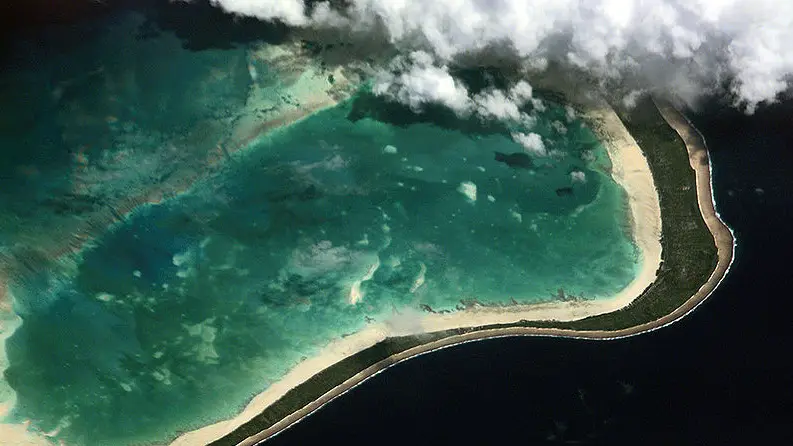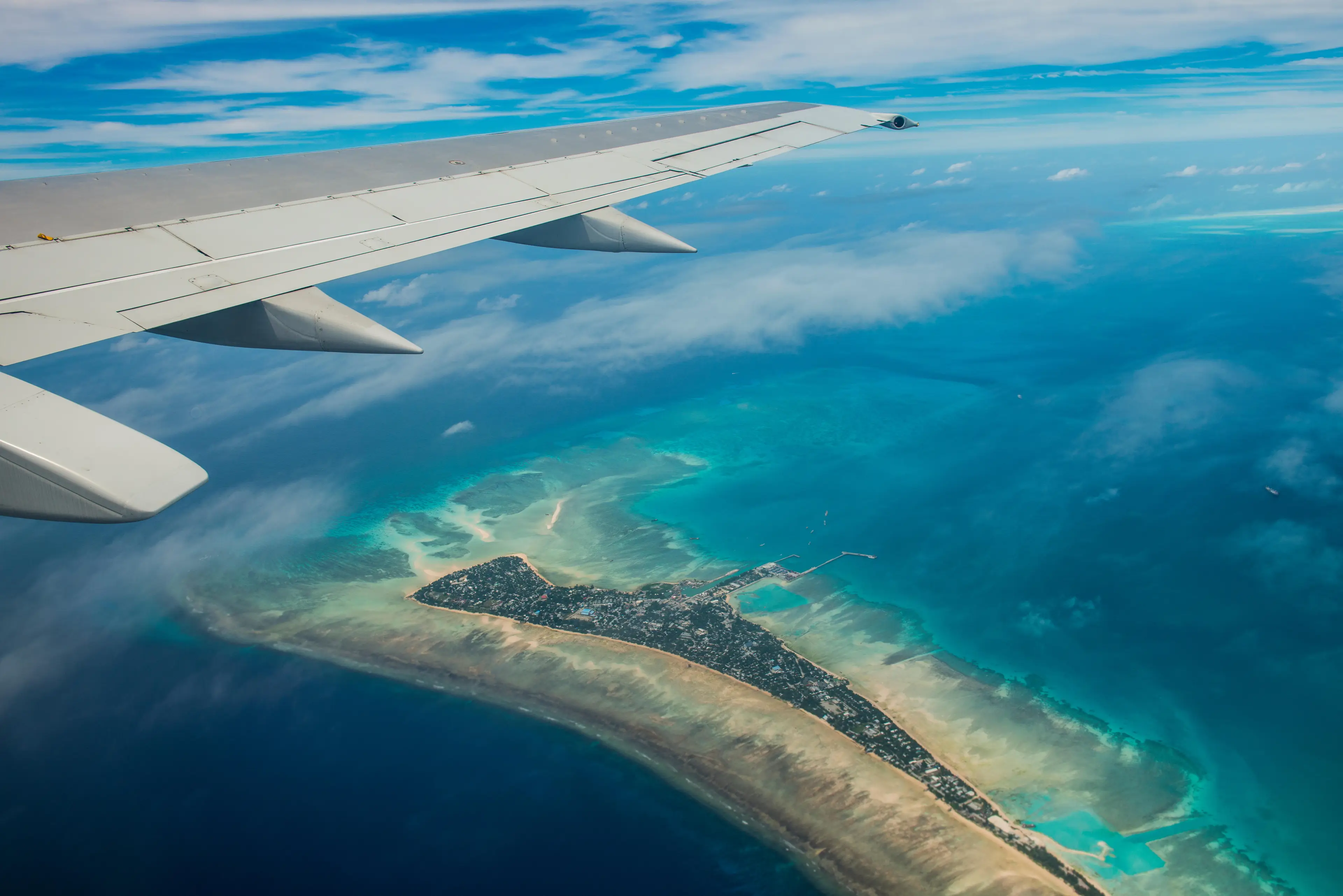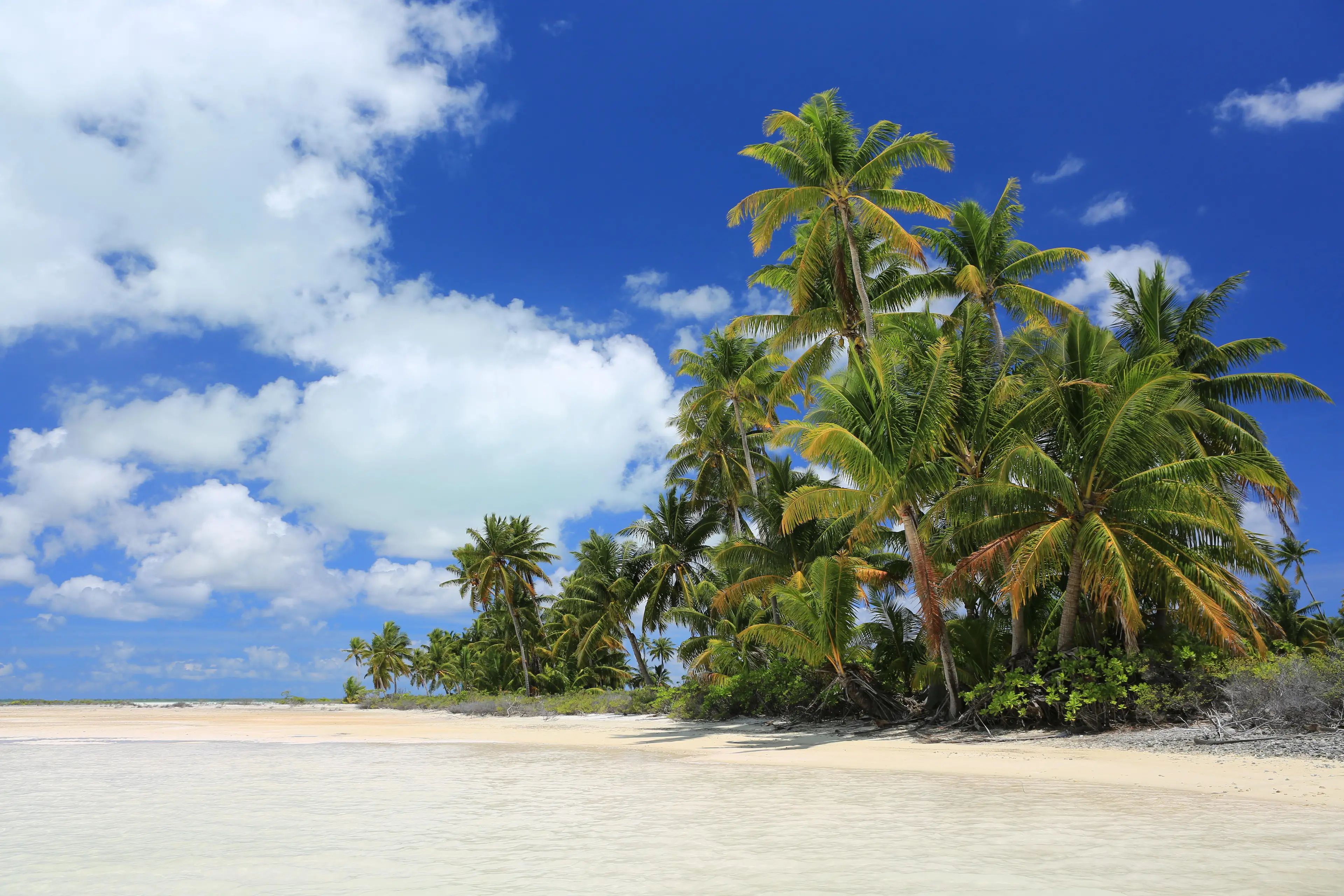
The first flight in 10 months to a Covid-free island in the Pacific Ocean brought a plane-load of infected people with it when it landed on 14 January.
The Fiji Airways flight carrying 54 people to Kiribati arrived with 46 of its passengers testing positive for Coronavirus.
Independent island nation Kiribati's population of 119,000 was Covid-free for the entire pandemic and had only reopened its borders on 10 January after a 10 month ban.
Authorities said the passengers from the Fiji flight are well and living in quarantine but a member of the quarantine facility staff has now tested positive, according to The Independent.
Kiribati's government announced a four-day nationwide lockdown from Monday as well as a two-week curfew from Tuesday as a result.

Residents of the island are only allowed to leave home to buy essential groceries and to seek medical assistance.
Kiribati's schools have been closed.
Eyebrows are being raised in surprise as the positive passengers from the flight had been in quarantine for two weeks prior to departure.
They were also tested for the virus before departing Fiji.
Kiribati consists of a collection of 32 atolls - ring-shaped islands - four hours from Fiji and halfway between Australia and Hawaii.
Double-vaccination received over 14 days before departure, a negative test result within 72 hours before departure, proof of being Covid-free 14 days before departure, proof of travel from a Covid-free country, and a 14 day quarantine upon arrival are all required as part of Kiribati's entry policy.
One government graphic claims over 93 percent of the island's population has received its first dose of the vaccine and over 53 percent has received its second.

Total travel bans have meant many island nations have succeeded in preventing the pandemic from affecting their nations.
University of Bath's Professor of microbial pathogenesis Andrew Preston told CNBC zero-Covid strategies are unsustainable in the long-term.
“The scenario under which zero Covid had the greatest credibility was maintaining it while very high levels of immunity were built with vaccination,” he said.
“However, for most countries, it has proved very difficult to get a level of vaccination high enough to prevent any spread of an imported case, and now with the ability of Omicron to reinfect and infect those vaccinated it appears to be a non-starter as a long-term policy.”
Featured Image Credit: Credit: NASA